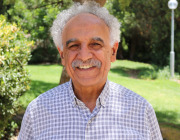Abstract:
The study examined family and teacher support as factors that can protect adolescents from internalized and externalized problems after exposure to community violence (ECV). Self-administered questionnaires were filled out by a sample of 1,832 Arab and Jewish Israeli high school students. The Arab adolescents reported significantly higher levels of community violence victimization, internalized problems, externalized problems, family support, and teacher support than the Jewish adolescents. The girls reported higher levels of internalized problems, and the boys reported higher levels of externalized problems. ECV predicted high levels of internalized and externalized problems, family support predicted low levels of internalized and externalized problems, and teacher support had no predictive role. Path analysis confirmed the significance of the relationships between ECV effects, support variables, and gender. The limitations of the study and implications of the findings for future research and for the development of family care and family intervention programs are discussed.Notes:
Funding Information: The author(s) disclosed receipt of the following financial support for the research, authorship, and/or publication of this article: This research was supported by grants from the CRB Bronfman Foundation, the Sara Moses Fund, the Sondra and Chen Feldman Fund, and the Milton Rosenbaum Fund. Publisher Copyright: © The Author(s) 2018.
